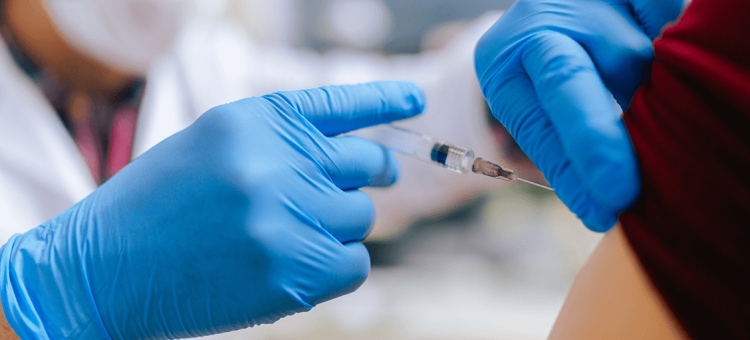Children ages 5 to 11 are now eligible for COVID-19 vaccinations, with new guidance from the CDC coming on Tuesday evening. In new polling data from SurveyMonkey and Outbreaks Near Me, a team of epidemiologists based at Boston Children’s Hospital and Harvard Medical School, about 4 in 10 (38%) parents with children in that age group said they would be willing to have them vaccinated. That number has been steady for the past several weeks, even as CDC and FDA approval has grown increasingly likely.
In comparison, 41% of parents with children ages 5 through 11 said they were willing to have them vaccinated a week before the approval. While parents’ willingness to have their children vaccinated has remained relatively steady in recent weeks, overall there has been an increasing number of parents who are willing to have their children vaccinated now compared to the spring. In late April of 2021, 33% of parents with children ages 5 through 11 were willing to get their children vaccinated, compared to late October where 38% of parents said the same.
Parents of older children are also significantly more willing to have them vaccinated against COVID-19, with 61% of parents with children ages 16 to 17 saying they would have them vaccinated and 58% of parents with children ages 12 to 15 saying the same as of late October. Similar to parents of children ages 5 through 11, those with older children have also been increasingly more willing to have their children vaccinated over time such that 58% of parents with children ages 12 through 15 said they are willing to have them vaccinated as of late October, up from 43% in April.
The percentage of parents with children ages 5 through 11 who say they are “not sure” if they are willing to have their children vaccinated has steadily decreased since the spring from about 1 in 3 parents (32%) in late April to 2 in 10 parents (22%) in late October. The percentage of parents who are not willing to have their children vaccinated has remained relatively steady compared to parents who are undecided or willing to have their children vaccinated.
Parents’ education impacts willingness to get their children vaccinated
Significant variation exists among parents’ willingness to have their children ages 5 through 11 vaccinated against COVID-19. According to the latest data, parents who have obtained a post-graduate degree are most likely to say they are willing to have their children vaccinated (60%) compared to those with a college degree (52%) and without a college degree (32%). Similarly, Asian parents are almost twice as likely to say they are willing to have their children vaccinated compared to white parents (63% vs 34%). Comparatively, 36% of Black parents say they are willing to have their children vaccinated and 44% of Hispanic parents say the same.
Parents’ willingness to have their children vaccinated also differs greatly depending on their political affiliation. More than half (57%) of Republican parents of children ages 5 through 11 say they would not be willing to get their children vaccinated. Comparatively, 6 in 10 (60%) Democrats say they would be willing to have their children vaccinated, a rate almost twice as high as parents who identify as politically independent (34%).
Health care sites are most popular location for those willing to have their children vaccinated
Among parents who are willing to have their children vaccinated, about two-thirds (67%) of parents with children ages 5 through 11 say they would have them vaccinated at a health care site. Pharmacies and hospitals were the second and third most common places where parents would be willing to have their children vaccinated, at 56% and 55%, respectively.
While parents of younger children may be more likely to visit a health care site for a COVID-19 vaccine, parents of older children were slightly more likely to say they would be willing to have their children vaccinated at a pharmacy (59% for children ages 12-15; 58% for children ages 16-17) compared to a health care site (58% for children ages 12-15; 56% for children ages 16-17).
Read more about our polling methodology here.



